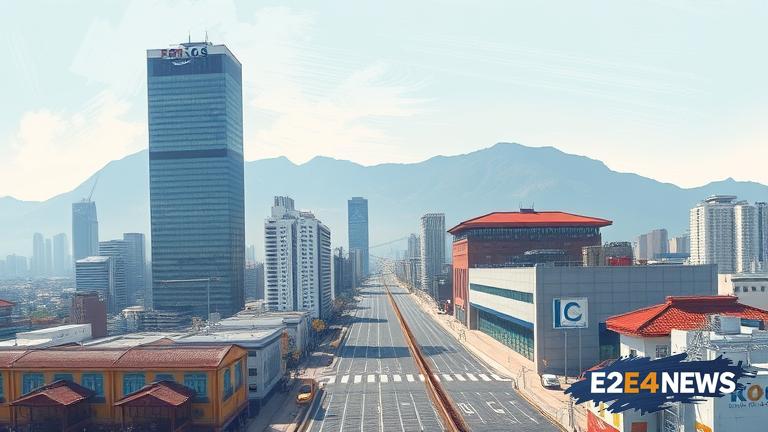South Korea’s economic growth has slowed down significantly in recent months, primarily due to the ongoing global trade tensions and decreased demand for semiconductors. The country’s exports, which account for a significant portion of its GDP, have been severely impacted by the US-China trade war. The Korean government has been trying to diversify its export markets and reduce its dependence on a few key industries, but the results have been slow to materialize. The decreased demand for semiconductors, which is one of South Korea’s main export items, has also had a major impact on the country’s economy. The global semiconductor market has been experiencing a downturn, and this has resulted in reduced production and exports for South Korean companies such as Samsung and SK Hynix. The Korean government has announced plans to invest in emerging technologies such as artificial intelligence and 5G networks, in an effort to drive economic growth and reduce its dependence on traditional industries. However, the implementation of these plans has been slow, and the results have yet to be seen. The country’s economic slowdown has also had an impact on the job market, with unemployment rates increasing and job creation slowing down. The Korean government has been trying to address this issue by implementing policies to support small and medium-sized enterprises and encourage job creation. Despite these efforts, the economic outlook for South Korea remains uncertain, and the country is expected to experience a significant slowdown in economic growth in the coming months. The International Monetary Fund has also revised its forecast for South Korea’s economic growth, predicting a slower rate of growth than previously expected. The Korean government has announced plans to increase government spending and implement fiscal policies to support the economy, but the effectiveness of these measures remains to be seen. The country’s economic slowdown has also had an impact on the stock market, with the Korean won experiencing significant fluctuations in value. The Korean government has been trying to stabilize the currency and support the stock market, but the results have been mixed. Overall, South Korea’s economic growth has slowed down significantly in recent months, and the country is facing significant challenges in terms of trade tensions, decreased demand for semiconductors, and a slowing job market. The government’s efforts to address these issues and drive economic growth are ongoing, but the results have yet to be seen. The country’s economic outlook remains uncertain, and it is expected to experience a significant slowdown in economic growth in the coming months. The impact of the economic slowdown on the country’s society and politics is also a major concern, with many Koreans expressing anxiety about the future of the economy and the country’s ability to compete in the global market.
